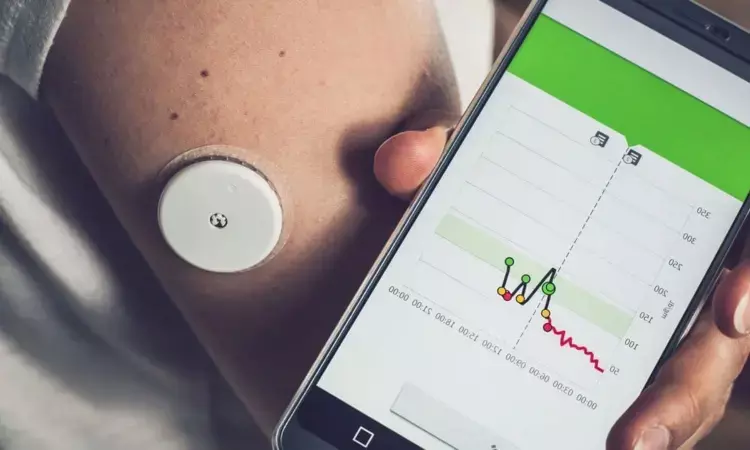- Home
- Medical news & Guidelines
- Anesthesiology
- Cardiology and CTVS
- Critical Care
- Dentistry
- Dermatology
- Diabetes and Endocrinology
- ENT
- Gastroenterology
- Medicine
- Nephrology
- Neurology
- Obstretics-Gynaecology
- Oncology
- Ophthalmology
- Orthopaedics
- Pediatrics-Neonatology
- Psychiatry
- Pulmonology
- Radiology
- Surgery
- Urology
- Laboratory Medicine
- Diet
- Nursing
- Paramedical
- Physiotherapy
- Health news
- Fact Check
- Bone Health Fact Check
- Brain Health Fact Check
- Cancer Related Fact Check
- Child Care Fact Check
- Dental and oral health fact check
- Diabetes and metabolic health fact check
- Diet and Nutrition Fact Check
- Eye and ENT Care Fact Check
- Fitness fact check
- Gut health fact check
- Heart health fact check
- Kidney health fact check
- Medical education fact check
- Men's health fact check
- Respiratory fact check
- Skin and hair care fact check
- Vaccine and Immunization fact check
- Women's health fact check
- AYUSH
- State News
- Andaman and Nicobar Islands
- Andhra Pradesh
- Arunachal Pradesh
- Assam
- Bihar
- Chandigarh
- Chattisgarh
- Dadra and Nagar Haveli
- Daman and Diu
- Delhi
- Goa
- Gujarat
- Haryana
- Himachal Pradesh
- Jammu & Kashmir
- Jharkhand
- Karnataka
- Kerala
- Ladakh
- Lakshadweep
- Madhya Pradesh
- Maharashtra
- Manipur
- Meghalaya
- Mizoram
- Nagaland
- Odisha
- Puducherry
- Punjab
- Rajasthan
- Sikkim
- Tamil Nadu
- Telangana
- Tripura
- Uttar Pradesh
- Uttrakhand
- West Bengal
- Medical Education
- Industry
Continuous Glucose Monitoring Improves Glycemic Control and Reduces Clinical Events in Type 1 and Type 2 Diabetes: Study

USA: Using continuous glucose monitoring (CGM) can significantly reduce mortality risk in individuals with type 1 and type 2 diabetes, according to research presented at the World Congress on Insulin Resistance, Diabetes, and Cardiovascular Disease.
The study, published in Diabetes Care, analyzed data from 719 adults with type 1 diabetes and 1,449 adults with type 2 diabetes. It highlighted that CGM metrics, including estimated blood glucose, time in range, and coefficient of variation, are closely linked to all-cause mortality risk.
Clinical trials and observational studies of continuous glucose monitoring have primarily focused on traditional type 1 diabetes (T1D) populations, emphasizing HbA1c and glycemic metrics like time in range. While evidence suggests potential benefits in reducing severe hypo- and hyperglycemia events, data on long-term outcomes, particularly for type 2 diabetes (T2D), remain limited. To fill this knowledge gap, Peter D. Reaven, Phoenix Veterans Affairs Health Care System, Phoenix, AZ, and colleagues evaluated the long-term benefits of initiating continuous glucose monitoring in adults with type 1 diabetes and type 2 diabetes, focusing on sustained glucose control and the reduction of serious clinical events.
For this purpose, the researchers conducted a retrospective observational cohort study within the Veterans Affairs Health Care System to compare glucose control, hypoglycemia- or hyperglycemia-related emergency room or hospital admissions, and all-cause hospitalization between CGM initiators and nonusers over 12 months, using propensity score overlap weighting.
The investigation uncovered the following findings:
- A total of 5,015 CGM users with type 1 diabetes (T1D) and 15,706 CGM users with type 2 diabetes (T2D) receiving insulin were identified from 1 January 2015 to 31 December 2020, along with similar numbers of nonusers.
- CGM users with T1D showed a significantly greater decline in HbA1c (−0.26%) than nonusers at 12 months.
- CGM users with T2D had a significantly greater decline in HbA1c (−0.35%) compared to nonusers at 12 months.
- More CGM users achieved HbA1c levels of <8% and <9% after 12 months compared to nonusers.
- In T1D, CGM initiation was associated with a significantly reduced risk of hypoglycemia (HR 0.69) and all-cause hospitalization (HR 0.75).
- In T2D, CGM use reduced the risk of hyperglycemia (HR 0.87) and all-cause hospitalization (HR 0.89).
- Several subgroups, based on factors like baseline age, HbA1c, hypoglycemic risk, or follow-up CGM use, showed even greater improvements.
The authors found that in a large national cohort, the initiation of continuous glucose monitoring was linked to sustained improvements in HbA1c in patients with later-onset type 1 and type 2 diabetes using insulin.
"This was also associated with a reduced risk of emergency room or hospital admissions for hypoglycemia or hyperglycemia, and all-cause hospitalization," they wrote.
Reference:
Peter D. Reaven, Michelle Newell, Salvador Rivas, Xinkai Zhou, Gregory J. Norman, Jin J. Zhou; Initiation of Continuous Glucose Monitoring Is Linked to Improved Glycemic Control and Fewer Clinical Events in Type 1 and Type 2 Diabetes in the Veterans Health Administration. Diabetes Care 1 April 2023; 46 (4): 854–863. https://doi.org/10.2337/dc22-2189
Dr Kamal Kant Kohli-MBBS, DTCD- a chest specialist with more than 30 years of practice and a flair for writing clinical articles, Dr Kamal Kant Kohli joined Medical Dialogues as a Chief Editor of Medical News. Besides writing articles, as an editor, he proofreads and verifies all the medical content published on Medical Dialogues including those coming from journals, studies,medical conferences,guidelines etc. Email: drkohli@medicaldialogues.in. Contact no. 011-43720751


